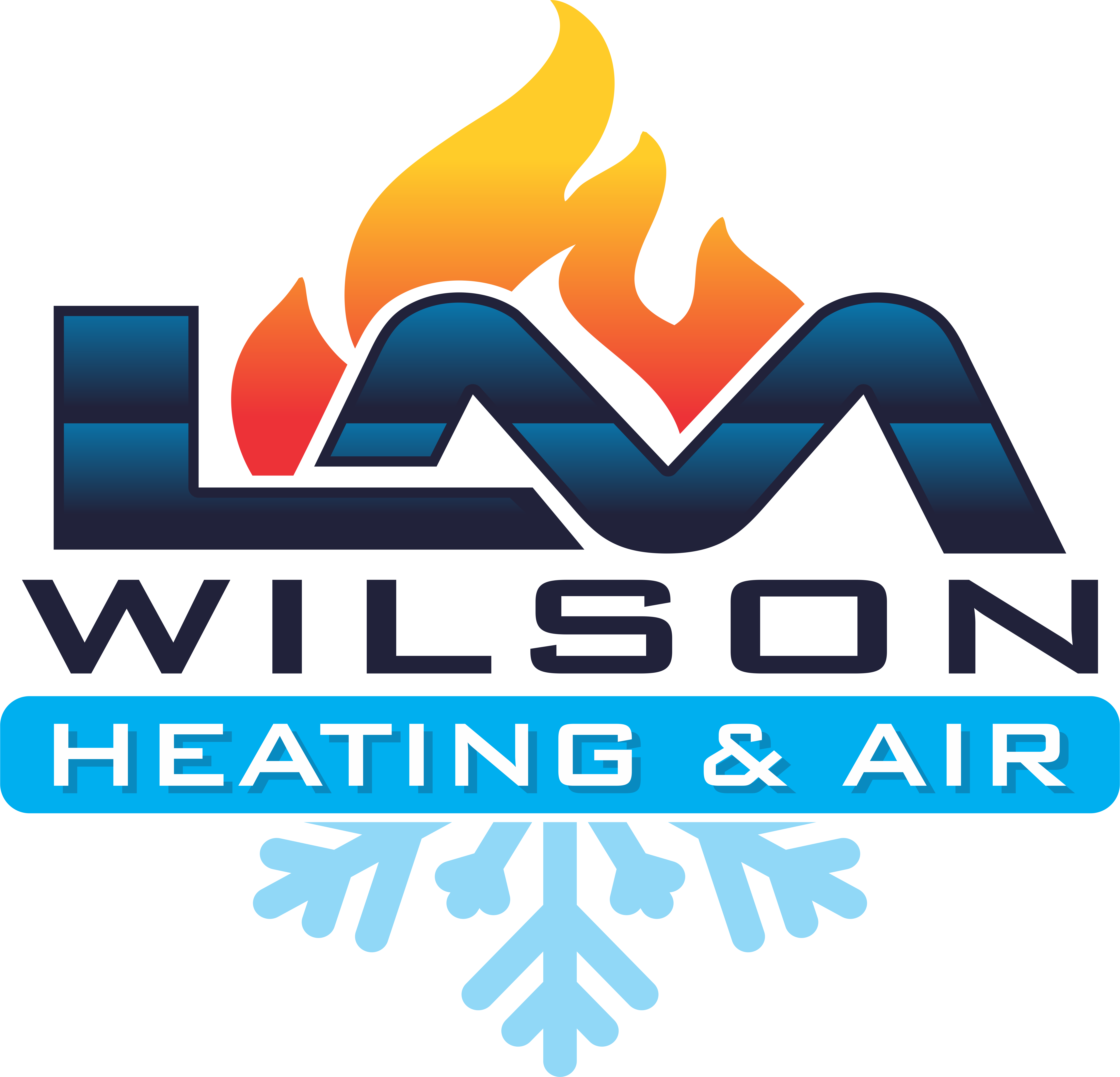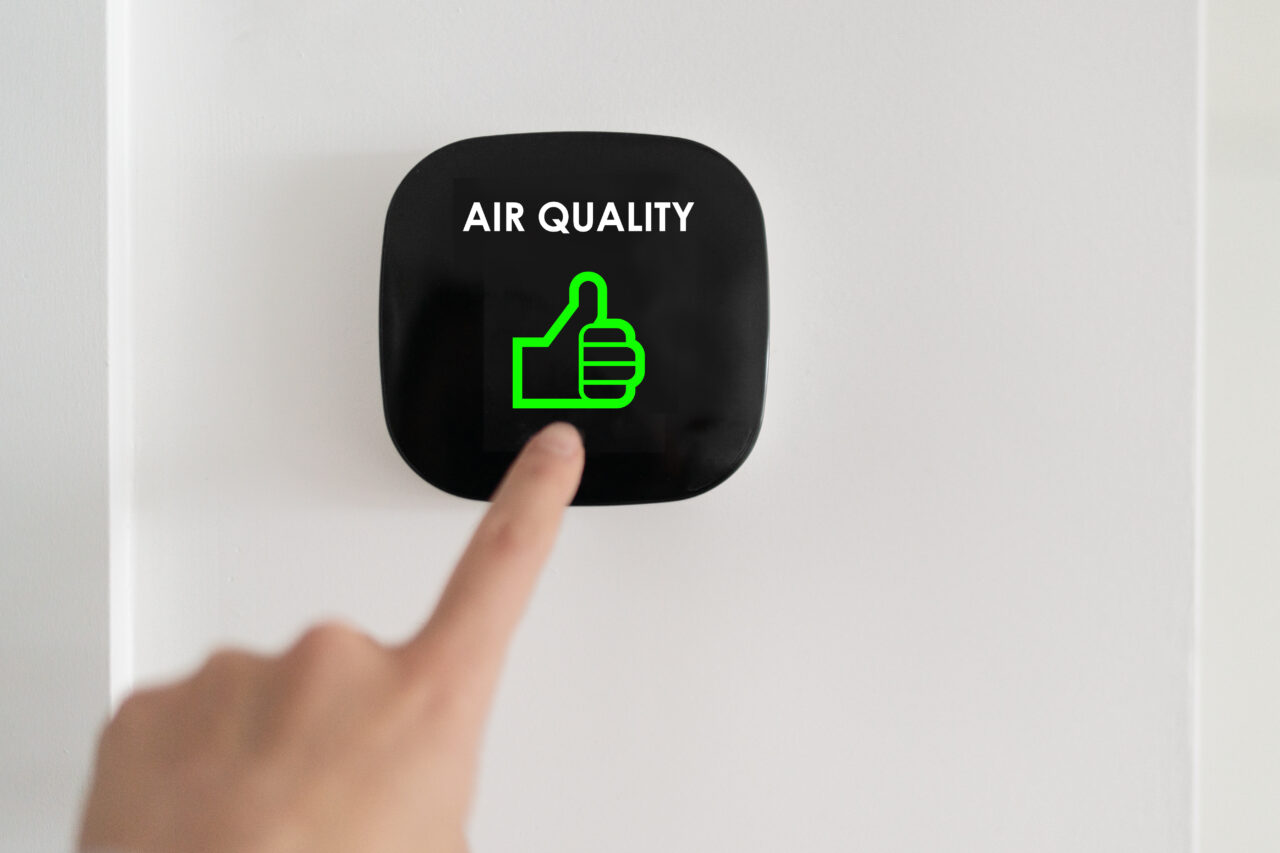As families across the country search for ways to improve indoor air quality and reduce the spread of illness, air purifiers have emerged as a popular solution. But can an air purifier truly help reduce sickness in your household? The short answer is yes—when used correctly, air purifiers can remove harmful particles and allergens from the air, potentially decreasing the risk of illness.
In this comprehensive guide, we’ll break down how air purifiers work, their role in promoting a healthier home, and whether they are a viable solution for reducing sickness in your household. At LM Wilson Heating & Cooling, we believe in empowering homeowners with the knowledge they need to make informed decisions about indoor air quality and HVAC systems.
Understanding How Air Purifiers Work
An air purifier’s primary function is to clean the air by filtering out airborne particles such as dust, pollen, pet dander, mold spores, and bacteria. These devices are equipped with filters—most commonly HEPA filters (High-Efficiency Particulate Air)—that trap microscopic particles, preventing them from circulating through your home.
In addition to HEPA filters, some air purifiers use technologies like UV light, ionizers, or activated carbon to capture and neutralize pollutants. Each of these technologies targets specific contaminants:
- HEPA Filters: These filters trap particles as small as 0.3 microns, including dust, pollen, and bacteria.
- Activated Carbon Filters: These absorb gases and odors, including volatile organic compounds (VOCs) found in household cleaning products and chemicals.
- UV-C Light: Some air purifiers use UV light to kill or inactivate bacteria and viruses.
- Ionizers: These release negatively charged ions into the air, which bond with airborne particles, causing them to fall out of the air or be trapped by the purifier’s filter.
Can an Air Purifier Reduce the Spread of Illness?
The air inside your home can be full of allergens, bacteria, and viruses, all of which can contribute to sickness. Here are several ways air purifiers can help reduce household illness:
Trapping Airborne Viruses and Bacteria
One of the most significant ways an air purifier can help reduce sickness is by filtering out airborne pathogens like viruses and bacteria. Air purifiers with HEPA filters are especially effective at capturing particles of this size. While a HEPA filter cannot kill viruses or bacteria, it can remove them from the air, reducing the likelihood of them being inhaled.
Some purifiers also use UV-C light to neutralize microorganisms, preventing them from reproducing and potentially spreading. Research suggests that UV-C technology, when used correctly, can deactivate viruses and bacteria, adding another layer of protection.
Reducing Allergens That Can Lead to Respiratory Illnesses
Many people suffer from seasonal allergies or asthma, which can weaken the immune system and make them more susceptible to illness. Air purifiers effectively remove common allergens like pollen, dust mites, and pet dander from the air, reducing the number of irritants that can trigger respiratory issues.
By minimizing allergens, air purifiers help create a cleaner, healthier environment where respiratory illnesses are less likely to occur. For people with asthma or allergies, this can be especially beneficial, as exposure to allergens can exacerbate symptoms and contribute to further health issues.
Eliminating Harmful Pollutants
Household air can contain various harmful pollutants, including chemicals from cleaning products, paint, and furniture. These pollutants, often referred to as volatile organic compounds (VOCs), can contribute to poor indoor air quality and lead to symptoms such as headaches, nausea, and respiratory problems.
Air purifiers equipped with activated carbon filters can absorb these harmful chemicals, removing them from the air and reducing the chances of indoor pollutants causing illness. While air purifiers can’t completely eliminate VOCs, they can significantly reduce their concentration, improving overall air quality.
Neutralizing Mold Spores
Mold spores are another common indoor contaminant that can cause illness, particularly in those with mold sensitivities or compromised immune systems. Air purifiers can help capture airborne mold spores before they settle and grow, reducing the risk of mold-related illnesses. However, it’s important to note that while an air purifier can remove mold spores from the air, it cannot eliminate mold growth on surfaces. Proper mold remediation is essential if you already have a mold problem in your home.
Limitations of Air Purifiers in Reducing Household Illness
While air purifiers can certainly improve air quality and reduce the number of airborne pathogens and allergens, they are not a cure-all solution for preventing sickness. Here are some limitations to consider:
Air Purifiers Do Not Replace Proper Hygiene
Air purifiers can help reduce airborne contaminants, but they cannot prevent the spread of germs from person to person. Washing hands frequently, disinfecting surfaces, and maintaining proper hygiene are still essential steps in reducing the spread of illness in a household.
Not All Airborne Viruses Are Captured
While HEPA filters are highly effective at capturing airborne particles as small as 0.3 microns, some viruses are smaller than this and may not be trapped by the filter. However, many viruses travel in droplets, which are larger and can be captured by HEPA filters. Purifiers with UV-C light or ionizers may help target smaller particles, but these technologies should be used with caution, as some ionizers can produce ozone, which can be harmful to respiratory health.
Limited Effectiveness in Large Spaces
The effectiveness of an air purifier depends largely on the size of the room it’s used in. A small purifier may be insufficient in a large room or an entire home. For optimal results, it’s essential to choose an air purifier with a capacity suited to the size of the room where it will be used. Some homeowners opt for multiple air purifiers throughout the home to ensure all areas are covered.
Requires Regular Maintenance
Air purifiers need regular maintenance to remain effective. Filters should be replaced according to the manufacturer’s recommendations, and in some cases, UV-C bulbs need to be replaced as well. If an air purifier is not properly maintained, it may become less effective at removing contaminants from the air, reducing its ability to improve indoor air quality.
Other Steps to Improve Indoor Air Quality and Reduce Sickness
In addition to using an air purifier, there are several other steps you can take to improve your home’s indoor air quality and reduce the likelihood of illness:
Ventilation
Proper ventilation is key to maintaining good indoor air quality. Ensuring your home has adequate airflow—whether by opening windows or using an HVAC system with a fresh air intake—helps dilute and remove airborne contaminants.
Humidity Control
Maintaining the right humidity levels in your home is important for both comfort and health. Too much humidity can encourage mold growth and dust mites, while too little humidity can dry out your respiratory system, making it easier for viruses to take hold. Ideally, indoor humidity should be kept between 30% and 50%.
Regular HVAC Maintenance
Regular maintenance of your HVAC system is crucial for optimal air quality. Change your HVAC filters regularly, and schedule professional maintenance checks to ensure the system is functioning efficiently. A well-maintained HVAC system can help keep indoor air clean and reduce the spread of contaminants.
Use Natural Cleaning Products
Many household cleaning products contain harmful chemicals that can contribute to poor indoor air quality. Opting for natural, non-toxic cleaning products can help reduce the number of VOCs in your home.
Choosing the Right Air Purifier for Your Home
When selecting an air purifier, consider the following factors:
- Size: Choose a purifier that matches the size of the room you want to clean. Air purifiers typically have a recommended room size capacity, so be sure to select one that’s appropriate for the space.
- Filtration Technology: Look for air purifiers with HEPA filters, as they are the most effective at capturing small particles, including viruses and bacteria. If you’re concerned about VOCs or odors, opt for a unit with an activated carbon filter.
- Additional Features: Some air purifiers come with added features such as UV-C light or ionizers. While these can be beneficial, it’s essential to choose models that are safe and do not produce harmful byproducts like ozone.
Air purifiers can play a significant role in improving indoor air quality and reducing the risk of household sickness by filtering out harmful particles such as viruses, bacteria, allergens, and pollutants. However, they are most effective when used alongside other strategies, such as proper hygiene, ventilation, and regular HVAC maintenance.
At LM Wilson Heating & Cooling, we’re dedicated to helping you create a healthier home environment. If you’re interested in learning more about how an air purifier can benefit your household or need assistance with indoor air quality solutions in the Burlington, NC area, feel free to contact us at (336) 663-1370. Our team of experts is here to guide you through the process and help you choose the best air quality solutions for your home.


